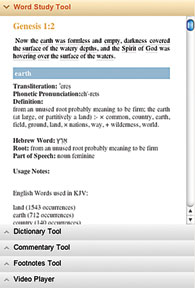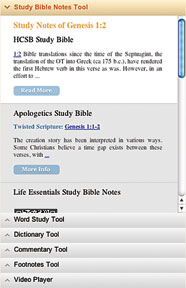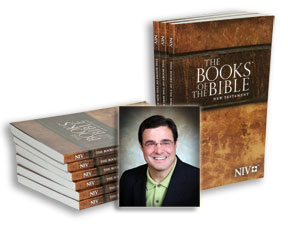
By Ronald E. Keener
Publishing companies and pastors giving attention to ‘Bible engagement vacuum.’
There’s a renewed focus on the Bible in churches these days, as biblical literacy is making a comeback in congregations and publishing houses in the U.S.
“What’s really encouraging to me is that deep Bible engagement within the congregation is eminently doable,” says Paul Caminiti, vice president of church and Bible engagement for the publishing firm Biblica.
“But people today realize that we’re in trouble and that we’ve not given the Bible its due,” says Caminiti, himself an expert in this area.“There really is a Bible engagement vacuum in the church.
I’ve watched lives transformed when pastors treat Bible engagement like a varsity sport. I’ve watched congregations transformed when instead of little camp fires, a big Bible engagement bonfire is built in the middle of the church.
“We are living in an interesting time. The Spirit seems to be doing a unique work. The soil seems to be unusually receptive to the seed. God help us take full advantage of this season,” says Caminiti.
In several ways, 2012 seems the “year of the Bible.” Caminiti was the Bible publisher at Zondervan when his team in 2005 created The Story. Last year Randy Frazee brought out The Heart of The Story and Max Lucado released God’s Story, Your Story, both now at Oak Hills Church, San Antonio, TX.
Saddleback’s Rick Warren is bringing out a 40 Days in the Word Bible study this month, and American Bible Society has its The Essential 100, all looking to fill the vacuum. “There does seem to be a new zeitgeist in the church for deeper Bible engagement,” says Caminiti.
“In the Reveal study (Willow Creek), when 80,000 church attenders were asked, what do you need most from your church?, 87 percent responded: Help me understand the Bible in depth,” he reports.
Caminiti says: “The Story (Zondervan), The Bible in 90 Days (Zondervan) and Community Bible Experience (Biblica) have something in common: they help the reader see the Bible through a telescopic lens whereas most Bible studies look through a microscope, so we see what Randy Frazee calls the Bible’s ‘upper story.’”
Church Executive interviewed Paul Caminiti about the concern for biblical literacy and what publishers are doing about it.
Are you able to summarize or document the state of biblical knowledge generally in America today? What does research tell us about Bible reading?
At Biblica we do watch the research carefully, and for the most part, researchers agree that we are losing ground at an alarming rate (something pastors would tell you without studying the research data). Recently we extrapolated some data that shows 700 people in North America quit reading the Bible every day. If we were in any other industry and saw that kind of drop-off, we would be alarmed.
Are we worse off in knowing scriptures than a decade ago? Your own literature says: “The number of people who think the Bible is a fairy tale has doubled in the last 30 years. Bible reading has stagnated.”
I would say yes. There are numerous societal shifts that the church has been slow to respond to.
Information technology has exploded. In the 1970s we were members of the “Baskin and Robbins generation.” Think about the number of choices today.
Added to the explosion of the Information Age is the diminishing face-time the average pastor has with parishioners. A decade ago people might be at church on average three or four hours a week.
Now with the diminishing Sunday evening services and adult education, if parishioners show up three times a month, we consider them to be faithful attenders. We’ve never really adjusted to these cultural realities, and we’re paying for it in diminishing Bible engagement.
Any telling examples of the low level of bible engagement today? What are the “hard questions” we should be asking?
I think we have to own up to the reality that the modern church has created a culture of a “Bible McNuggets” and assumed they are nutritious. So people who read at all, usually read verse-a-day devotionals, or a chapter a day — pretty much a “Bible vitamin” approach. Few “read big.” Not to be irreverent, but reading fragments is boring. Read any book one page a day and it will be the worst read of your life. Yet that’s how we’ve been trained to read the Bible. Little wonder that 700 give up reading every day.
Are there ways that pastors might preach the Bible that improves retention and application of life?
Better preaching is a big topic, but if I had to choose one thing I’d go with N.T. Wright’s challenge:
We have to teach people to read the Bible with 1st century eyes and ask 21st century questions. I think pastors, in attempting to be “relevant,” end up teaching the Bible as though it were a modern book. But the richness, intrigue and complexity – the stuff that makes the Bible and God really interesting – really comes to light when we are serious about the history behind the text. I also think we’d preach better if we were less focused on the application of the text and more focused on the implications of the text.
Randy Frazee said in our October 2011 interview with him, “Many Christians don’t know what they believe or why. Our faith is not rooted in Scripture. We revere the Bible but don’t read it.” Harsh words after all these centuries and today’s huge Bible publishing industry?
I agree with Randy. Church people will spill blood to defend the orthodoxy of the Bible but they’re just not that into it. But I believe the problem runs deeper than Bible literacy. Literacy might make us better at Bible Jeopardy. What we really need is more Bible lovers.
It seems an uphill battle in relating biblical lessons to the world we live in. What is at stake here; how can the church stay ahead of culture?
I think research has firmly established that Christians live almost as badly as those outside the church. I don’t want to sound like a broken record, but I believe our failure to thrive goes back to our failure to engage people deeply in the Bible.
If there’s to be step change, we need to confess that status-quo Bible engagement is no longer working. Let’s be honest about our current strategy. For years we’ve given people reading plans (usually near the beginning of the new year) and challenged them to go home and read the Bible.
Somehow (although it’s seldom measured) we’ve assumed that this methodology is successful. A few succeed, but the overall truth is that the reading plan strategy has been a colossal failure.
There’s loads of shame and self deprecation from failing again and again.
What can bible publishers do to enable people to read and learn from the Bible?
For starters, I think Bible publishers have to be more worried and focused on whether consumers are actually engaging the Bibles they produce and sell. When I was the Bible publisher at Zondervan, I had a consultant tell me I was lazy and that if I were a doctor, I’d be sued for malpractice, because the medicine I was distributing clearly wasn’t working, but we kept dispensing it anyway.
It was only when we started feeling some responsibility for declining Bible reading that our publishing got creative. Bibles like The Message (NavPress) and The Archeological Study Bible (Zondervan) were birthed out of a sense that we needed better Bibles, not more Bibles.
You’ve spoken about the need to “shift the way we think and use the Bible.” Explain.
The modern church has unintentionally developed some bad habits in the way we think about and use the Bible. First, we read the Bible in fragments – a verse or two here and a chapter there. The Bible wasn’t given to us in sound bites, but that’s how we consume it.
Second, we read the Bible outside its original context. The average reader never gets into a historical mindset. Third, we read the Bible in isolation. The Bible wasn’t written to individuals, it was written primarily to communities of faith. But most of us read as lone rangers. Reading begins and ends with “me.” In the aggregate, these three bad habits have negatively impacted Bible engagement. What we need is The Complete Bible, Understood in Context, Experienced in Community. That’s the DNA in a Community Bible Experience.
How can congregations help their people better in gaining knowledge of the Bible and how it applies to their lives?
The greatest need, as I see it, is for churches to have a serious plan for engaging the congregation in the Bible. Simply having people come to hear sermons is not a serious plan. Read the online journals for pastors, and the most common topic is: how to be a better preacher.
Virtually nothing is written about a serious plan for engaging the congregation in the Word. I really believe the future lies with senior leaders who will be multi-dimensional, who will go beyond preaching and adopt or develop Bible engagement plans for the laity.
Any other thoughts about churches engaging the Bible?
What’s really encouraging to me is that deep Bible engagement within the congregation is eminently doable. It’s true that people are crazy busy, and that we’re drowning in information, and that Google is making us stupid. But people today realize that we’re in trouble and that we’ve not given the Bible its due. There really is a Bible engagement vacuum in the church.
Over the last eight years I’ve watched what happens when that vacuum is filled. I’ve watched lives transformed when pastors treat Bible engagement like a varsity sport. I’ve watched whole congregations transformed when instead of little camp fires, a big Bible engagement bonfire is built the middle of the church.
We are living in an interesting time. The Spirit seems to be doing a unique work. The soil seems to be unusually receptive to the seed. God help us take full advantage of this season.
____________________________________________________
Treating the Bible as a ‘varsity sport’
 Senior Pastor Jeff Manion: In my preaching ministry at Ada Bible Church (Grand Rapids, MI) I have a twofold desire. My first aspiration is to present the biblical narrative in a way that explores the richness of the context and people involved. Where did they live? What were there hopes and fears? What personal tragedies and dilemmas were they experiencing? My second desire is to bridge the biblical narrative to my congregation exploring the implications for our lives.
Senior Pastor Jeff Manion: In my preaching ministry at Ada Bible Church (Grand Rapids, MI) I have a twofold desire. My first aspiration is to present the biblical narrative in a way that explores the richness of the context and people involved. Where did they live? What were there hopes and fears? What personal tragedies and dilemmas were they experiencing? My second desire is to bridge the biblical narrative to my congregation exploring the implications for our lives.
For our fall series the last several years I have taken filming trips to Israel and Turkey in order to bring the land of the Bible to our people. Last fall, to prepare for a series from Ephesians, I traveled with a photographer, rented a car and the two of us zipped around the region filming the ruins of Ephesus and other archeological cites in the area. We then played three to five minute clips in each of the sermons in this series. This time and effort was really appreciated and gave our people a better understanding of the world that Paul was writing to.
 Senior Pastor Ray Johnston: I’ve been known for preaching biblical sermons at Bayside Church (Granite Bay, CA) that featured the themes of encouragement and hope. Even though this style of preaching has been enormously successful, I became convicted that it was time to unpack each book of the New Testament in a systematic way. After announcing this new course for preaching, Bayside experienced record-breaking attendance throughout the 27-week series on the New Testament books.
Senior Pastor Ray Johnston: I’ve been known for preaching biblical sermons at Bayside Church (Granite Bay, CA) that featured the themes of encouragement and hope. Even though this style of preaching has been enormously successful, I became convicted that it was time to unpack each book of the New Testament in a systematic way. After announcing this new course for preaching, Bayside experienced record-breaking attendance throughout the 27-week series on the New Testament books.
____________________________________________________
Digital ‘natives’ dig deeper
 The Millennial generation is connecting with the Bible more through digital means than print, which means if a bible publisher is going to make it, offering digital options is extremely important. With foresight into the bible market, Broadman & Holman Publishing released MyStudyBible.com last year aimed at pastors, lay leaders and especially at digital natives.
The Millennial generation is connecting with the Bible more through digital means than print, which means if a bible publisher is going to make it, offering digital options is extremely important. With foresight into the bible market, Broadman & Holman Publishing released MyStudyBible.com last year aimed at pastors, lay leaders and especially at digital natives.
“We wanted to provide a way for digital natives who have grown up on the Web to actively engage in biblical study, beyond just reading the printed Bible,” explains Aaron Linne, executive producer and digital marketing manager for B&H Publishing. “We came up with the idea to create a digital Bible portal with every resource needed to study God’s Word in-depth right at your fingertips in one spot.”
Filling the need is MyStudyBible.com, created for people who rely on technology to do everything; as people are reading the biblical text, additional tools dynamically populate with rich content to provide the reader with opportunities for deeper learning and understanding.
The publisher decided to make the HCSB Study Bible notes completely free online through this service, so that people engaging in biblical study would have a great tool right there for them, at no cost.
“The key for digital biblical study is deep integration,” Linne says. “With this digital study tool, the platform actively brings relevant content to you based on the text you’re reading. For instance, if you are reading a commentary on John 3:16, the platform knows you’re at John 3:16 and can present to you appropriate content to your topic—both conten t you own and other content in the system that you should be made aware of.”
t you own and other content in the system that you should be made aware of.”
That’s the benefit that digital resources bring to the world of biblical study: the ability to offer multiple resources, all in one place online, with the ability to add commentaries, dictionaries such as Strong’s Greek and Hebrew Dictionary, devotionals, and other books into a reader’s online profile.
While some content is paid, MyStudyBible.com offers a plethora of content at no cost so that many people can benefit from using MyStudyBible.com even if they never login. Bottom line: digital natives will feel at home using this site to strengthen their faith and walk closer with God.
“This integrated study can even take place beyond the screen and back into the text, like we have done with integrating 1,500 videos into the print edition of the Life Essentials Study Bible,” notes Linne. “We are moving towards a place will all kinds of Biblical content will be fully integrated with one another.”
MyStudyBible.com features the Holman Christian Standard Bible that was written by 100 scholars and English stylists from 17 denominations, and is considered one of the most significant Bible translations available. — Lauren Hunter
______________________________________________
New formatting increases Bible literacy
Biblica’s Community Bible Experience: The Books of the Bible “soft launched” with 50 churches last fall. Paul Caminiti explains the approach:
 Four years in the making, The Books of the Bible removes modern formatting like chapters and verses and creatively re-orders the books. For example, the New Testament begins with Luke and Acts, which gives the reader a framework for what God does in the first century. The rest of the books are in a better historical order. The Books of the Bible is designed to be read from cover to cover.
Four years in the making, The Books of the Bible removes modern formatting like chapters and verses and creatively re-orders the books. For example, the New Testament begins with Luke and Acts, which gives the reader a framework for what God does in the first century. The rest of the books are in a better historical order. The Books of the Bible is designed to be read from cover to cover.
In a Community Bible Experience, the congregation reads The Books of the Bible New Testament in eight weeks. There are five readings a week, with two “grace days” if you need to catch up. Then the church comes together in small groups, once a week, to talk about their questions and discoveries. Because people are reading about 10 to 12 pages a day (about a half hour for the average reader), they are full, and the observations and insights are breathtaking.
We deliberately modeled the small group experience after a book club instead of a traditional Bible study. In my opinion, questions in the participant’s guide often get in the way of a full and rich reading of the text. In our post-campaign interviews, we’ve discovered that people love The Books of the Bible, they love reading the entire New Testament, and they love it that their whole church is doing it together! www.biblica.com/CBE


